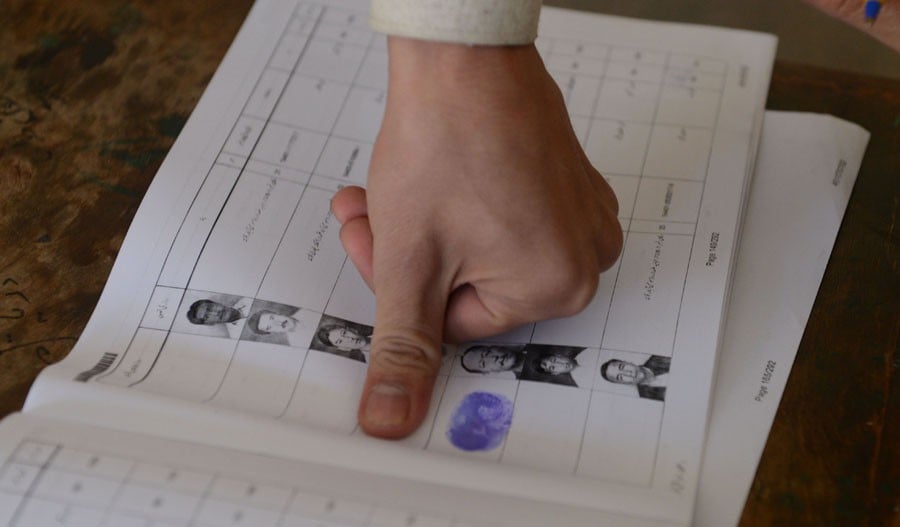
Lack of literacy is wrongly presumed to be the defining factor of the voters’ ‘bad’ electoral choices

I have a problem with people looking at education in terms of the Marxist class distinctions. But that’s a discussion for another time. For now, I’d like to talk about the common ‘perception’ -- among those few men and women who have had the good fortune, or means, or both, to get college education -- that we elect ‘corrupt’ politicians because the majority of voters are illiterate.
In other words, illiteracy is presumed to be the defining factor of the voters’ ‘bad’ choices.
It will perhaps add no value to this discussion if the focus remains on the standard discourse about democracy not given a ‘chance,’ and military intervention undermining the process of democracy, that has resulted in the voters making ‘bad choices.’ Enough has been said and written about that. My point is to deconstruct the elitist, ‘educated-class’ argument which is centred on shifting blame and responsibility on the illiterate, and making it a rationale of the political irrationality of the (largely) rural voters.
Why do the illiterate make the ‘irrational’ choice and elect the same ‘corrupt’ people to legislature? Why are they not concerned about better legislation, services, and governance? Why do they vote on petty infrastructure concerns -- of drains and roads? This single factor -- the irrationality of bad choices -- lies squarely on illiteracy with an obvious hint of sympathy of the educated elite for the uneducated non-elite.
The argument here is that illiteracy is bad and should be eradicated for many reasons. But the point is that literacy does not necessarily translate into ‘wisdom’ -- the wisdom to make the right choice, electoral or otherwise.
The General Elections of 2013 witnessed the highest turnout -- 55.02%. Half of Pakistan exercised its right to vote. In rural political economy, the choices are limited by a number of factors. Firstly, there is ‘identity’ politics -- from clan to caste, a limitation framework is laid out and ironclad, and an individual’s ‘illiterate wisdom’ clearly dictates that they stay with the herd.
Then there are caste coalitions. Again, the same illiterate wisdom makes a sensible choice: stay with the herd.
Historically, it is rare that populism of an idea or persona is able to break through this bounded rationality and capture the imagination and wisdom of the uneducated voters. Their interest universe makes it easier for them to make the sensible choice. They live in a universe where their interests are best safeguarded by remaining with the herd, and that’s a perfectly rational thing to do.
Dreams and ideals are a luxury that hardly touch the lives of the rural voter. The telecom revolution has undoubtedly dented this conventional wisdom, and rural population -- irrespective of its level of education -- now debate beyond their mauza-level issues. But it is still rare.
Another moot point is that the social media is playing a negative or positive role in educating the voters and guiding them to make ‘wise’ electoral choices. In the absence of firm and transparent governance, corruption is an enabler to cut or circumvent barriers to get your basic rights. ‘Corruption’ as a concept is not part of an illiterate person’s life.
Therefore, it may be an empathetic idea to stop blaming the illiterate voter for making bad choices and delegitimising their choices. It has to be understood that what happened in the past limited years of our electoral democracy was due to the irresponsibility of urban voters who made a deliberate choice not to poll their votes. They did in the last elections but all the subsequent blames for rigging were essentially an urban challenge to legitimacy of rural votes.
Wisdom is no one’s monopoly, and it is certainly not an essential product of literacy. Illiteracy or literacy should not be a factor for legitimacy of a person’s electoral choice. I rest my case.